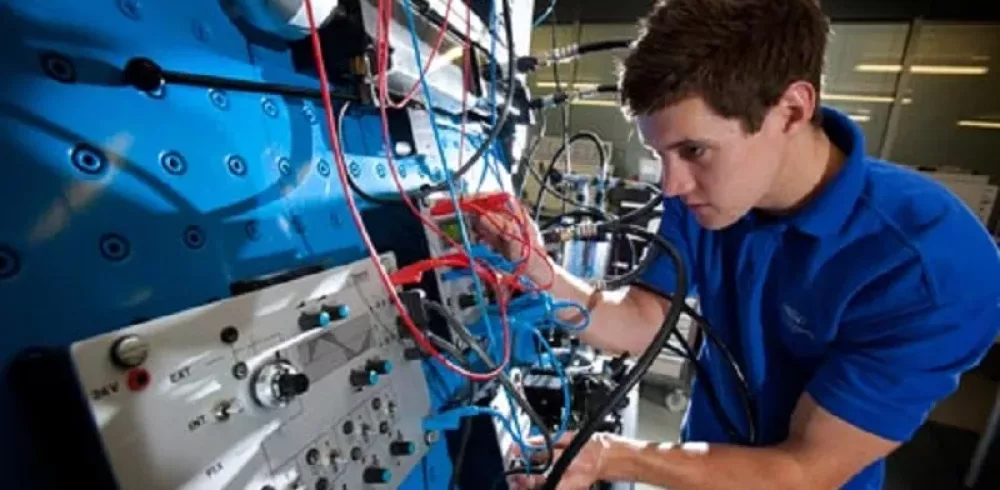The manufacturing and engineering sector is one of the biggest contributors to the UK economy. In 2014 alone, the engineering sectors contributed an estimated £455.6 billion to the Gross Domestic Product – 27% of the total UK GDP. They are also responsible for an estimated 5.7 million jobs in the UK – 19% of the total UK employment.
To ensure that the sector continues successfully, it’s important to show how lucrative a career would be to young people. Thankfully, young people’s perceptions have become more positive over recent years.
51% of 11-16-year olds said that they have thought about and are considering a career in engineering in 2016, a 10% increase on 2012’s result. This shift towards a more positive perception of the industry could be thanks to the influence of parents and teachers at school. 96% of teachers would recommend a career in engineering to their pupils, and three quarters of parents view engineering positively as a career.
Are apprenticeships the way forward?
The engineering and manufacturing sector is one of the top five most popular apprenticeship routes, with 74,000 starts in 2016/17. In fact, they have remained in the fourth position since 2010.
Unfortunately, figures suggest that almost a third of apprentices in the UK fail to make it to the end of their apprenticeship and complete the programme. Overall success rate for apprenticeships has taken a decline to around 68.9% when compared to 2010 when it was at 76.4%. So, what do the figures look like for engineering and manufacturing? Is the decline apparent here too?
Looking back to 2014/15, we found that there were around 58,000 engineering apprenticeships in England alone — 42% of them were Level 3 or above. However, despite no official figures, we can assume that the 2016/17 success rate figures for engineering apprenticeships has continued to rise now that there are over a quarter of a million workplaces offering apprenticeship programmes, a 50% increase over the past five years. Furthermore, four out of five manufacturing employers are reported to be planning to recruit manufacturing and engineering apprentices in the next year.
Completing higher education
The engineering sector is witnessing a shortage in engineering graduates. Engineering graduates are slowly decreasing within the sector. The future forecast predicts that we will need 265,000 skilled entrants per year to meet the demand for engineering enterprises until 2024. However, currently, we are experiencing a shortage of 20,000 graduates.
However, engineering courses across the country have witnessed a 5% growth in the number of applicants in comparison to the 2.7% growth across all other courses. Likewise, 71% of those applicants entering a first degree in engineering and technology are from UK origin.
A lot of engineering students take up great positions after graduating. 68% of UK first degree engineering graduates are in full-time work six months after graduation and 84% are in full-time work three years after graduation, with only 2% unemployed.
The demand for skilled individuals to work in this sector will only increase, with 650,000 engineering businesses currently registered in the UK. Improving the perception of the industry is vital to the continuous success of the industry, as well as appropriate training. However, if the figures discussed here are anything to judge by, the engineering and manufacturing sectors don’t have much to worry about in this department.
This article was researched by Omega Plastics, who are specialists in injection moulding.
Sources
http://www.omega-plastics.co.uk/company-news/college-educational-visit/
https://www.ft.com/content/1e7a0f00-d712-11e5-8887-98e7feb46f27
http://www.engineeringuk.com/media/1355/enguk-report-2017.pdf
Manufacturing & Engineering Magazine | The Home of Manufacturing Industry News













